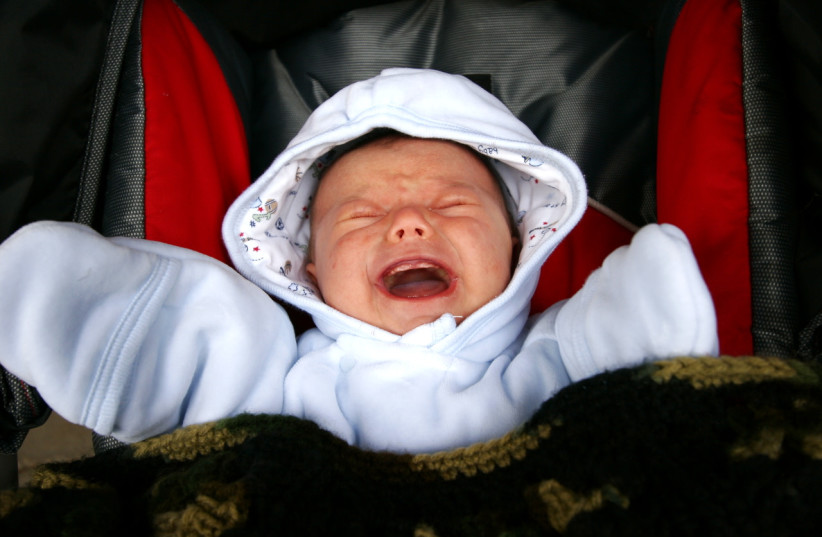A comprehensive international observational study involving over 3,200 newborns suffering from sepsis has exposed the escalating threat of antibiotic resistance.
Conducted between 2018-2020 in 19 hospitals across 11 countries, the peer-reviewed study revealed high mortality rates among infants with culture-positive sepsis and a significant burden of antibiotic resistance. The findings, published in PLOS Magazine, offer crucial insights aimed at improving the treatment and outcome of newborn babies with sepsis.
The Global Antibiotic Research and Development Partnership (GARDP), in collaboration with St. George's, University of London (SGUL), Penta - Child Health Research and the Medical Research Council Clinical Trials Unit at University College London (MRC CTU at UCL), led the study involving over 80 researchers across four continents.
Understanding newborn infections and treatments
According to Manica Balasegaram, Executive Director of GARDP, "It was very important to undertake this study to get a better understanding of the kind of infections we're seeing in newborns in hospitals, the bugs causing them, the treatments that are being used and why we are seeing more deaths.

"The study has given us vital information which will help us to better design clinical trials and ultimately improve the care and outcome of babies with neonatal sepsis."
Sepsis, a life-threatening bloodstream infection, affects up to 3 million babies globally each year. 214,000 newborns, primarily in low- and middle-income countries (LMICsa, succumb to sepsis annually due to antibiotic resistance. Newborns are particularly vulnerable to severe infection due to their underdeveloped immune systems.
The study revealed significant variations in mortality rates among the 19 participating hospitals, ranging from 1.6% to 27.3%, with higher rates observed in LMICs.
Sithembiso Valephi, head of pediatrics at Chris Hani Baragwanath Academic Hospital in Johannesburg, South Africa, emphasized the urgent need for change, stating, "The risk of infections is very high, and most infections are resistant to antibiotics. If an antibiotic doesn't work, the baby often dies. This urgently needs to change. We need antibiotics that will cover all bacterial infections."
One concerning finding of the study was the wide variation in treatment approaches. More than 200 different antibiotic combinations were employed and providers were compelled to use last-line antibiotics, such as carbapenems.
These antibiotics, recommended only for limited indications to preserve their efficacy, were often the only available options to combat the infections.
Furthermore, 15% of newborns with sepsis received last-line antibiotics and Klebsiella pneumonia was the most common pathogen identified, typically associated with hospital acquired infections.
Improving treatment and survival rates
To improve treatment and survival rates, the research team developed two tools based on the collected data. The NeoSep Severity Score, utilizing 10 clinical signs and symptoms, enables clinicians to identify newborns at high risk of mortality, ensuring they receive prompt and specialized attention.
The NeoSep Recovery Score, utilizing similar clinical indicators, provides clinicians with vital information for making decisions regarding treatment escalation.
Neal Russell, Principal Investigator for the neonatal sepsis study at SGUL, expressed the significance of the study in designing trials for appropriate sepsis treatments, stating, "The observational study has been instrumental in providing the high-quality data that we need to design trials of appropriate treatments for sepsis in newborn babies."
The study also aims to inform WHO (World Health Organization) guidelines for the treatment of newborn babies with sepsis, acknowledging the need for constant adaptation as organisms evolve and drug resistance changes.
Building upon the study's results, a pivotal public health clinical trial, known as NeoSep1, has been designed to discover better treatments for newborn infections in the face of increasing resistance to existing therapies. Led by GARDP, SGUL, and the MRC CTU at UCL, the trial will be conducted in hospitals in Johannesburg, Cape Town, and Kenya, with plans for expansion to other regions in 2024. The trial will also explore appropriate formulations and dosages for newborns.
The study's laboratory work, including pathogen analysis, will be instrumental in supporting the NeoSep1 trial. Surbhi Malhotra-Kumar, head of the Laboratory of Medical Microbiology at the University of Antwerp, highlighted the value of these findings, stating, "Together, these results provide valuable information for the NeoSep1 trial."
